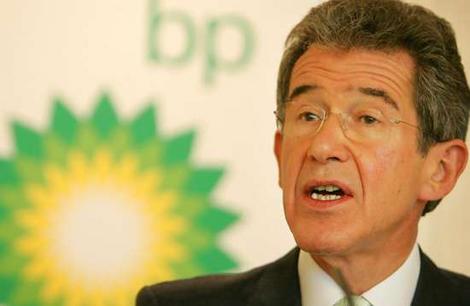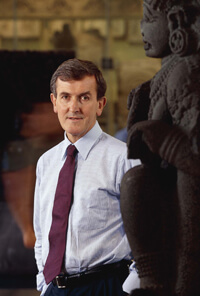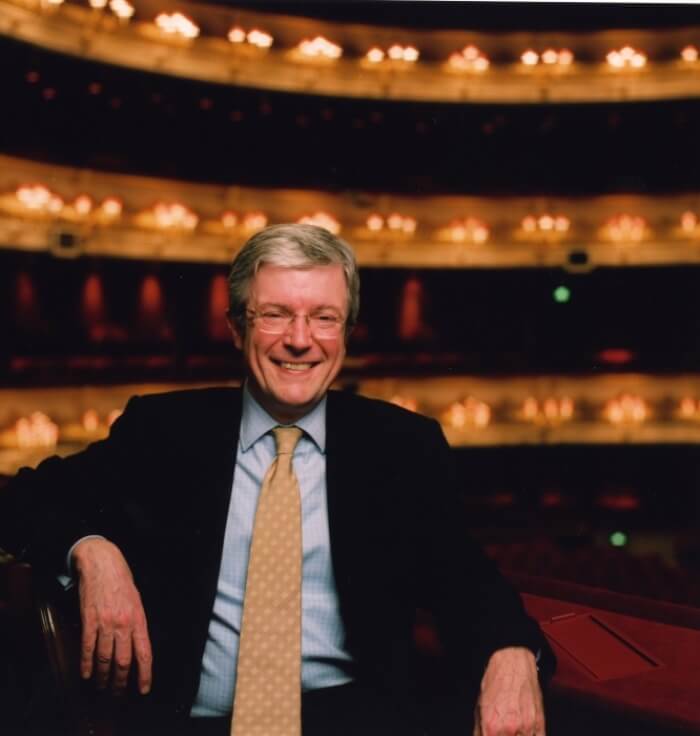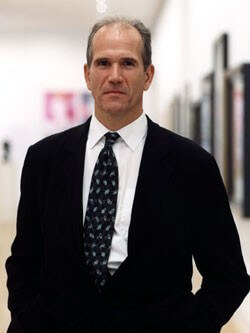It’s 10.30am on a spectacularly sunny winter’s day and I’m in the Members’ Room at Tate Modern. The room overlooks the Square Mile – London’s financial district – and the view symbolises the growing pressures on artists and arts organisations to seek funding from the private sector, specifically from business.
Looking once again at the panel which honours a long list of Tate’s private supporters, I ponder the different ways of reading it: you could feel pride in the civic engagement of all those individuals and companies; or be struck by the generosity of the givers; or be amazed at the successful brand that Tate has made itself into; or feel moved to become a contributor yourself.
Or you could be mournful for the shift to the private sector of a public institution; feel angry at the dramatic shift in ideology from welfare state to the marketisation of the public arena that has underpinned all this. You could reflect that over the 30 years since Thatcher’s first assaults, our state arts policy has been increasingly pursuing a survival-of-the-fittest model favoured by the USA’s Republicans. Witness Arts Council England’s latest £100 million strategic fund to promote assist arts organisations in accessing private philanthropy.
You could feel happy about this. You could feel outraged. You could feel confused.
Looking again at that list, another way of reading it is to focus on the formidable private sector lobby which endorses Tate. And how Tate as a brand is supremely placed to woo them in. And how – despite Tate Director Nicholas Serota’s outcry of ‘Blitzkrieg‘ at cuts to the arts – Tate is now ever more reliant on pleasing its coterie of major donors and sponsors. As its private sector funding increases, Tate can far more easily afford to ignore serious criticisms by sectors of its own public, not only arts lovers, but the British public at large, who own Tate. We’re seeing that happening right now.
In early December 2011, a petition signed by 8000 Tate Members and visitors exhorted Tate’s Trustees to reconsider its sponsorship by BP on ethical grounds. They cited the Deepwater Horizon disaster, BP’s investment in Tar Sands, and the imperative to combat climate change – a cause Tate itself has stated it is committed to. 8000 signatories. That constitutes a major petition, and, as the signators are those who love and support Tate, Tate should care. You’d think.
In response, Serota told Members at their AGM that the matter was of the utmost seriousness and had already caused a great deal of discussion. He affirmed that the issue would be considered at the forthcoming Trustees’ Meeting.
However, on 19th December, an announcement was made that BP had sealed a £10 million arts sponsorship deal, continuing its relationship for a further 5 years with four of London’s major arts institutions: the Royal Opera House, Tate, British Museum and National Portrait Gallery, a veritable BP quartet. This deal must surely have been in the pipeline for months, and Serota can be accused of issuing a sop to Tate’s members at their AGM, on what was nearly a done-deal. There was an outcry.
The foursome all dutifully sang the praises of BP’s sponsorship in the company’s promo film. And how could they not?
[Here,originally, there was a photo of Serota (Tate), MacGregor (British Museum), Nairne (National Portrait Gallery) and Hall (Royal Opera House) with Chairwoman (uncredited by BP) at private event at the British Museum marking BP’s £10 million sponsorship deal, December 2011. The algorithms have mysteriously removed it from the gallery. (Noted in Jan 2023)]
As well as the golden handcuff of the cash, it’s a close-knit white men’s club, operating at echelons stratospherically above the Marketing and Corporate Relations departments of each arts institution. Beyond mere professional networks, these men revolve in the same social circles, and are mired in existing commitments and relationships that keep them – and us – up to their chins in oil.
Lord John Browne, former dynamic CEO of BP, well-known lover of the arts, is a big
factor in all this. His duel affair with the arts and with fossil fuels is a combination that has proved toxic to those who are both committed to the arts but who are trying to wean this planet off its oil, coal and gas dependency.
Browne is a company man. An oil and gas company man. He was steeped in the business from a young age, following in the footsteps of his father into BP when he joined in 1966. He spent 41 years in BP, and was made CEO of BP 1998 – 2007, taking the company to new heights after the buy-out of Amoco in 1998. He is often held up as an exemplary Captain of Industry, and as a symbol of establishment approval, has sat for two portraits held in the National Portrait Gallery’s collection.
Since his resignation in 2007, he pursues various business interests, and is currently head of Riverstone Holdings, a high-stakes energy and power private equity firm. Browne’s identity is as a pioneer and a risk-taker, and this latest venture is no different. Riverstone is one of the two major backers of British company Cuadrilla Resources Ltd whose business is the highly controversial shale gas extraction, known as ‘fracking’. Deep reserves of natural gas are released from rock through horizontally pumping in millions of gallons of water, sand, and chemicals at high pressure, which fractures and blasts the rock apart. There is a massive outcry of local and international protest against fracking on environmental and health grounds – concerns at pollution of the water table, drinking water, land, air and noise pollution. Fracking can precipitate mini-earthquakes, threatening nature, property and peace of mind, as happened recently outside Blackpool, UK, Cuadrilla’s prime site, and over which a vigorous campaign against fracking is now running.
And in the bigger picture, a recent Tyndall Centre report has slammed the boom in fracking for its impacts on the climate, and that it is irreconcilable with the climate accords signed at Copenhagen in 2009.
Browne sits on the Board of Directors of Cuadrilla. After 41 years at BP and now with Cuadrilla, he is seasoned at handling high-profile controversy, a skill he no doubt usefully shares with his circle of friends and associates in the arts and culture.
Perhaps he can also share his skills in surviving charges of hypocrisy too: when CEO of BP, Browne shook up the global sector through the $200 million rebrand of BP in 2000 to “Beyond Petroleum”, trumpeting a move towards renewable energy, a move abandoned by BP’s next CEO Tony Hayward. “Beyond Petroleum” seems to sits anomalously with his continued immersion in oil and gas through Cuadrilla. It illustrates that the initiative to make BP a ‘green’ company was about changing the corporation’s image, not about altering its fundamental purpose. Even at the zenith of BP Alternative Energy, this division only contributed 1% to the overall turnover of the company. It should be remembered that during Browne’s 12-year tenure as CEO, the company constantly increased the amount of oil & gas it extracted and sold and therefore the amount of carbon dioxide that it help contribute to the atmosphere. In fact, by the time of his departure BP was responsible for 5.6 % of global CO2 emissions. This is double the entire population of the UK which is responsible for 2.6% of global emissions.
Sitting in the hotseat, it is therefore in his business interests to be embedded across sectors, to make himself and his businesses indispensible not only in terms of the economy, but also culturally through the arts, sports, and education.
In the current free-market-dominated political climate, Browne and his ilk don’t seem to have to look far for those who are more than happy to be part of this equation. Christopher Frayling, former Chair of Arts Council England, former Rector of the Royal College of Art is one. The advocate of private sector sponsorship memorably said in the context of the uproar against BP and their cultural sponsorship “The first person you go to [for sponsorship] is someone with an image problem… Now is not the time to be squeamish“. In one go, he acknowledges that there is something nauseous about relationships with such businesses, while at the same time fostering naked self-interest among arts organisations. A free-marketeer with a nose-peg. The worst sort.
Moving on to wider impacts, Browne’s cultural interests are broad and influential. He was very much part of the Blair project, part of the inner sanctum. So much so that he was entrusted with the job of reviewing Higher Education Funding, appointed by Peter Mandelson in 2009. In this now infamous Review published in October 2010 (with a receptive Coalition government to play to), Browne recommended the withdrawal of teaching subsidy for arts, humanities, and social sciences, as they have “no wider benefits”. This was amongst other draconian proposals such as removing the cap on tuition fees, both of which have sparked massive national protest. Clearly this is a man who agrees that the arts and artists should exist in a survival-of-the-fittest world, that they should pay their way in the open market, following the current US model. So it comes as no surprise that his personal passion for the arts has been tied up with BP sponsorship.
He was Chair of Trustees of the British Museum from 1995 – 2005, with BP’s sponsorship of the BM starting in 1996. He is still very linked in, and is a personal friend of Director Neil MacGregor.
He is an avid opera and ballet fan, regularly attending the Royal Opera House. The ROH is a BP veteran, having been sponsored by them since 1988. He sits in the House of Lords with the ROH’s Chief Executive and fellow peer, Lord Tony Hall.*
As well as fostering BP’s first 20-year sponsorship of Tate which began in 1990, Browne became a Trustee of Tate after his resignation from BP in 2007, and was appointed Chair in 2009. He is a personal friend of Nicholas Serota.
BP started sponsorship of the National Portrait Gallery’s Portrait Award in 1990, taking over from tobacco company John Player, a sector no arts organisation would now touch. He is a personal friend of Director Sandy Nairne.
These personal friendships were stated publicly around Browne’s resignation from BP, in a letter which was reputedly co-ordinated by Nicholas Serota.
Then there’s the Oxbridge connection, an elite club with hundreds of years of precedence for white men who aspire to run things: John Browne (b. 1948) and Nicholas Serota (b.1946) studied at Cambridge University, while Sandy Nairne (b.1953), Tony Hall (b. 1951), and Neil MacGregor (b. 1946) all studied at Oxford. Going further back, all five were sent to independent schools. Nairne and Serota worked together at Museum of Modern Art in Oxford and again at Tate where Nairne was Director of Programmes for 4 years, under Serota.
Same generation, same gender, same white privilege, same values, common conversation, common strategies, common culture. All for one and one for all. No-one different to disrupt the norms. A bit like the current government. With this old-style patriarchal model in place, how can it not be business as usual? No wonder the organisers of the launch event for the £10m sponsorship invited a black woman to act as Chair. And telling that BP did not deign to credit the Chair – the eminent Maggie Semple** – in their video.
But the real clincher is the oil-backed stranglehold of the 2012 London Olympics, with a whopping £50 million from BP for the Cultural Olympiad alone, let alone BP’s sponsorship of fuel for the games, and support for the USA Olympic Team for 2012 to 2016 – now there’s compensation for Deepwater…
Tony Hall is Chair of the Cultural Olympiad Board, overseeing the 4-year programme which includes major nationwide participatory projects with Tate, Royal Opera House, British Museum, National Portrait Gallery and others. The foursome could argue that to turn down the recent extension of 5-year funding while at the same time taking money for the Olympiad projects would be utterly impossible, not least contradictory, when they are already in so thick. But that is because – despite all bar the British Museum signing up to 10:10 to reduce their carbon footprints – they are still basically in support of a culture heavily dependent on oil. The British Museum is at least consistent.
So, carbon is temporarily running through these august institutions’ financial bloodstreams, through sponsorship as well as through the old (oiled?) boys’ networks. Everyone knows everybody, everyone’s from the same stable, intertwined, safe in the courtly dance of usual privileged suspects. To break ranks would cause ruffles, and that would take courage, vision and humility. It would also be a pioneering move which would herald hope and change for communities battling the impacts of oil and gas, and the devastation of climate chaos. It would be history-book stuff.
But the situation is only temporary. Someone will make that move, at some point in the not so distant future. A 25 to 30-year addiction to oil money is after all a sign of a serious dependency. The depth of the addiction is shown by the fact that even though these arts organisations have been charged with endorsing ecocidal and genocidal activity by community and activists armed with irrefutable evidence from from the Gulf of Mexico, and Alberta, they still cannot move away. How is it possible not to feel ashamed, implicated, or disgusted. And yet it continues to be possible for all those good people working at Tate, British Museum, Royal Opera House and the National Portrait Gallery to ethically justify the source of their funding from BP.
One explanation is history: for a certain generation the first reaction to “BP” will be from an earlier round of PR: the Smurfs, the association with Green Shield Stamps scheme, and a fostering of good old pride in a national company, a solid respectable responsible institution, from when Britain was apparently great. But the climate, literally, has changed. We have new information. The global consensus is that we have to withdraw from depending on these energy sources. Everyone and everything has to play its part. Including the financing of the arts and culture.
An indication of this shift is to speculate on which Directors, Boards of Trustees, which staff, would back taking money from Cuadrilla for example? I suspect none. Just too dirty, new and controvertial. Yet, dirty, old and controvertial appears acceptable. There is something comfortable and comforting about the same old faces, the pillars of the establishment telling us everything is ok. “If the Royal Opera House is still taking money from BP then we don’t have to worry”? But comfortable and comforting for whom?
However, while 2012 is likely to present a loud and sickening display of BP-fuelled cultural delirium, this is arguably the last hurrah. After Deepwater – and to soften us up for the Olympics – BP has attempted to silence dissent by sending in the sponsorship water cannon, in the form of the £10 million un-turn-downable donation. Brilliant move, but somehow a desperate one. Empires are at their biggest and most overbearing just before the fall.
The period of cold turkey has begun and there’s no turning back. It’s going to become very uncomfortable for those men at the top who can feel so insulated, so mutually affirmed. The rolling campaign and 8000 signed-up dissenting voices against Tate’s BP-addiction is part of a movement. The movement is broad-ranging, committed and clever, working at many different levels to intervene in the oil corporate love-in. Many more staff within these institutions are going to become part of this. These growing numbers of arts organisations, artists, and arts audiences are working nationally – and internationally because this addiction isn’t just happening here – instigating inoculation programmes, preparing new syringes, and snapping on fresh rubber gloves as we speak.
It’s 15.15 in the crowded cafe at the Southbank Centre, London. The skies have clouded over.
Could that be because of the shadow cast over Britain’s largest and much-loved arts centre by a close neighbour? The British headquarters of one of Southbank Centre’s long-term sponsors? That champion of human and environmental rights in the Niger Delta, Shell… ?
More soon.
****
UPDATE
* In November 2012, Tony Hall was appointed Director-General of the BBC.
In September 2013, Alex Beard took up post as Chief Executive of the Royal Opera House, London
In 2014, Sandy Nairne announced his intention to stand down from his role as Director of National Portrait Gallery in 2015. Destination as yet unknown
In 2015, Neil McGregor announced his intention to stand down from Directorship of the British Museum
** Currently Maggie Semple serves on a range of Boards including the British Library, Brit School, Sadler’s Wells Theatre Trust and the Southbank Centre. She is also a Non-Executive Director of Criminal Cases Review Commission where she Chairs the Audit and Risk Committee and Chair of the National Youth Music Theatre (NYMT). www.maggiesemple.com
Ideas in this blog were presented at the event “The Corporate Occupation of the Arts”, convened by Andrew Conio, at Bank of Ideas, London, on 14th January 2012.
NOTES on educational background
University: all Oxbridge
John Browne (b. 1948) studied Physics and Nicholas Serota (b.1946) Economics/History of Art at Cambridge University. Sandy Nairne (b.1953) studied Modern History and Economics, Tony Hall (b. 1951) Politics, Philosophy and Economics, and Neil MacGregor (b. 1946) French and German – all at Oxford.
Schooling: all private
Browne: King’s School Ely; Serota: Haberdashers Aske’s School; Nairne: Radley College; Hall: Birkenhead School; MacGregor: Glasgow Academy




